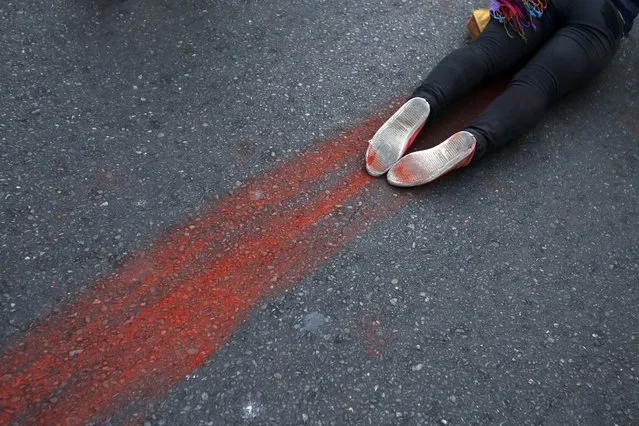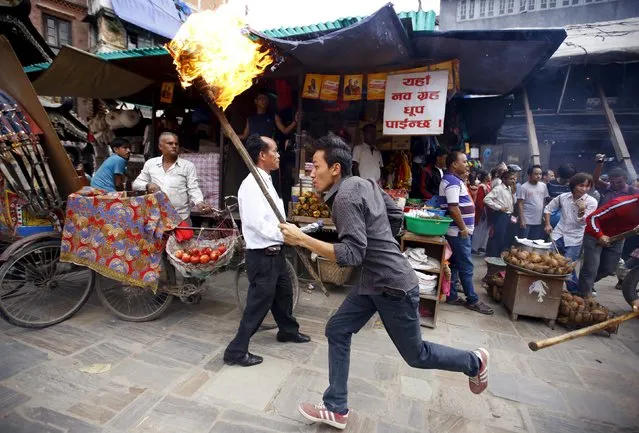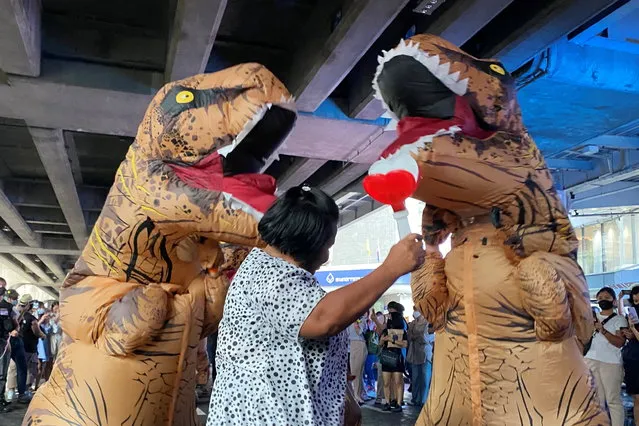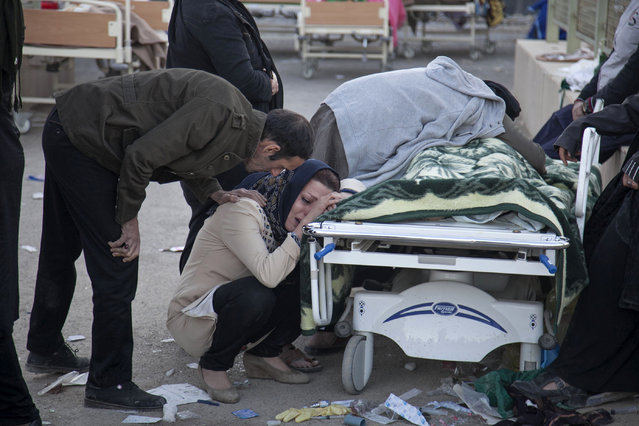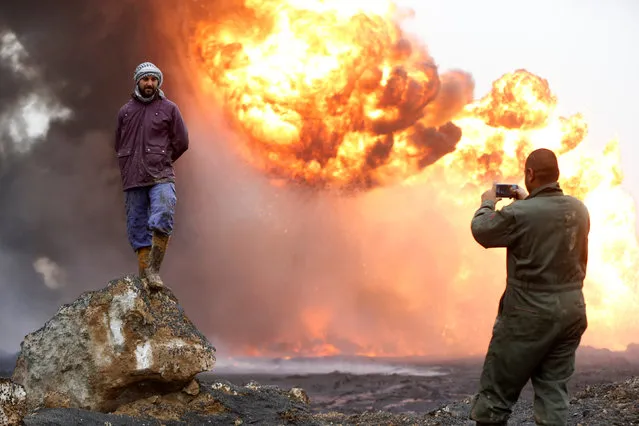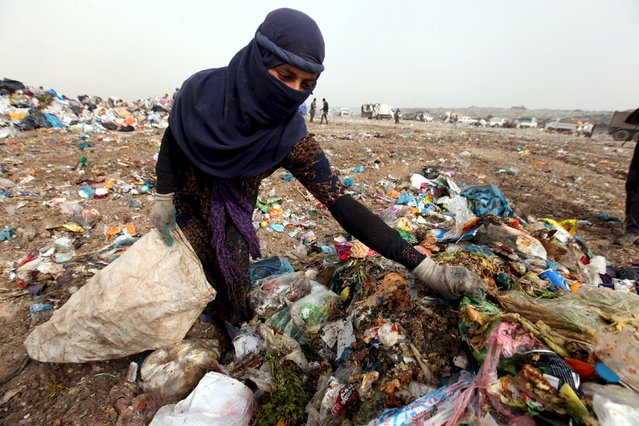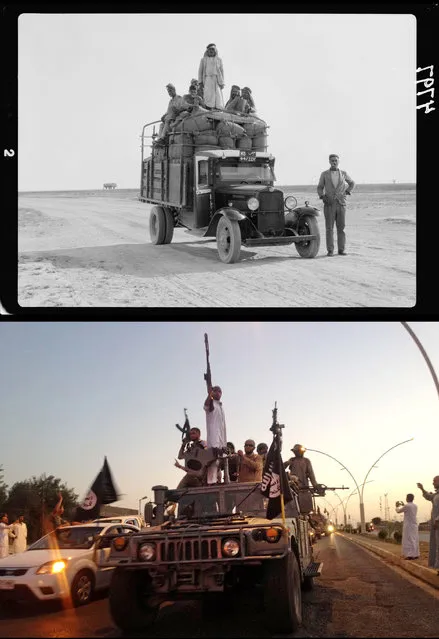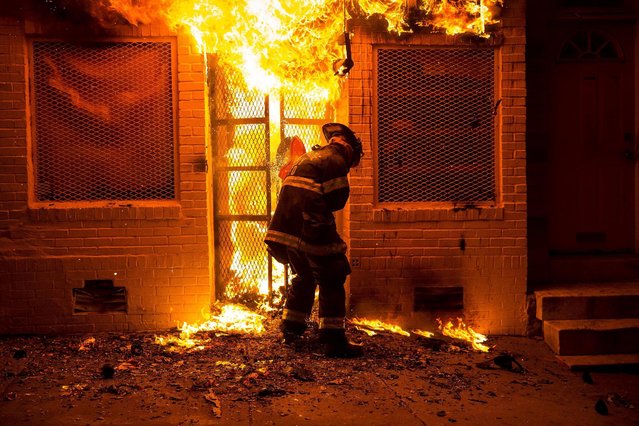
A firefighter uses a saw to open a metal gate while fighting a fire in a convenience store and residence during clashes after the funeral of Freddie Gray in Baltimore, Maryland in the early morning hours of April 28, 2015. (Photo by Eric Thayer/Reuters)
29 Apr 2015 06:21:00,post received
0 comments

